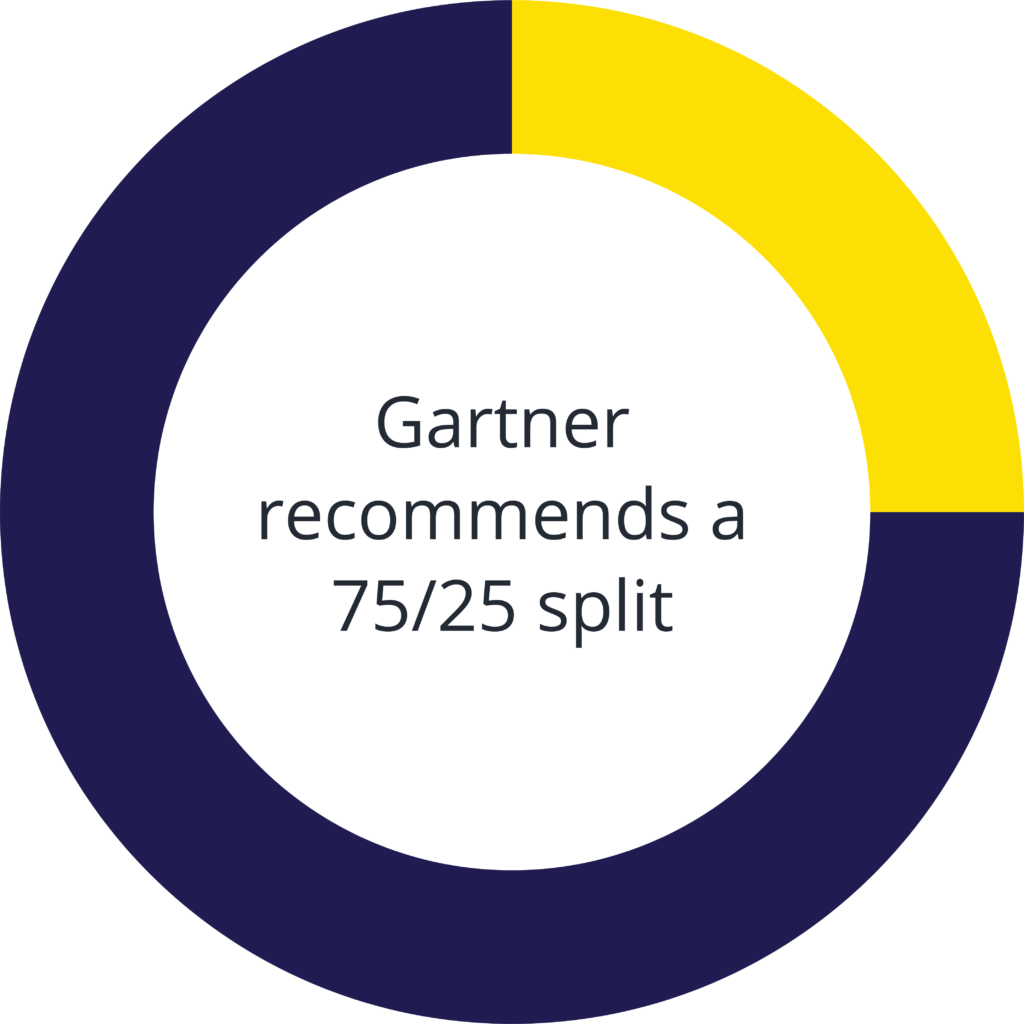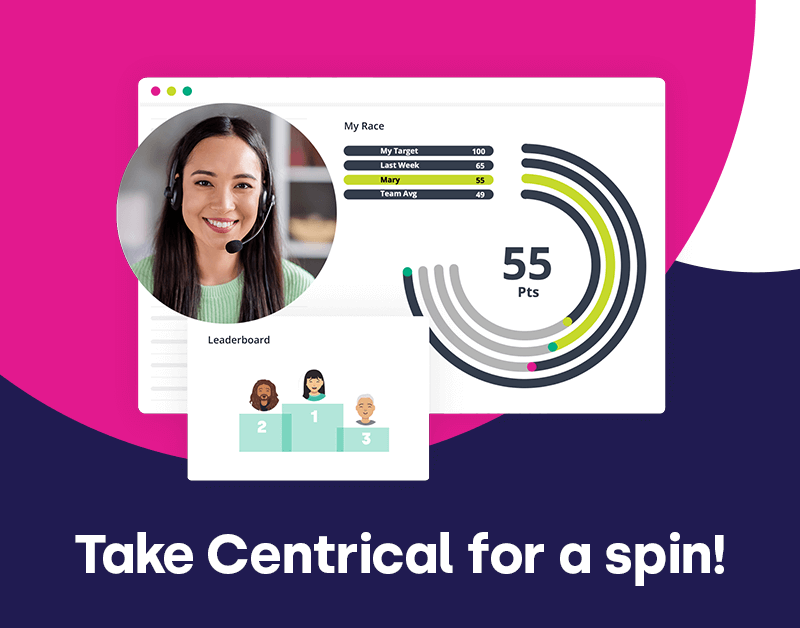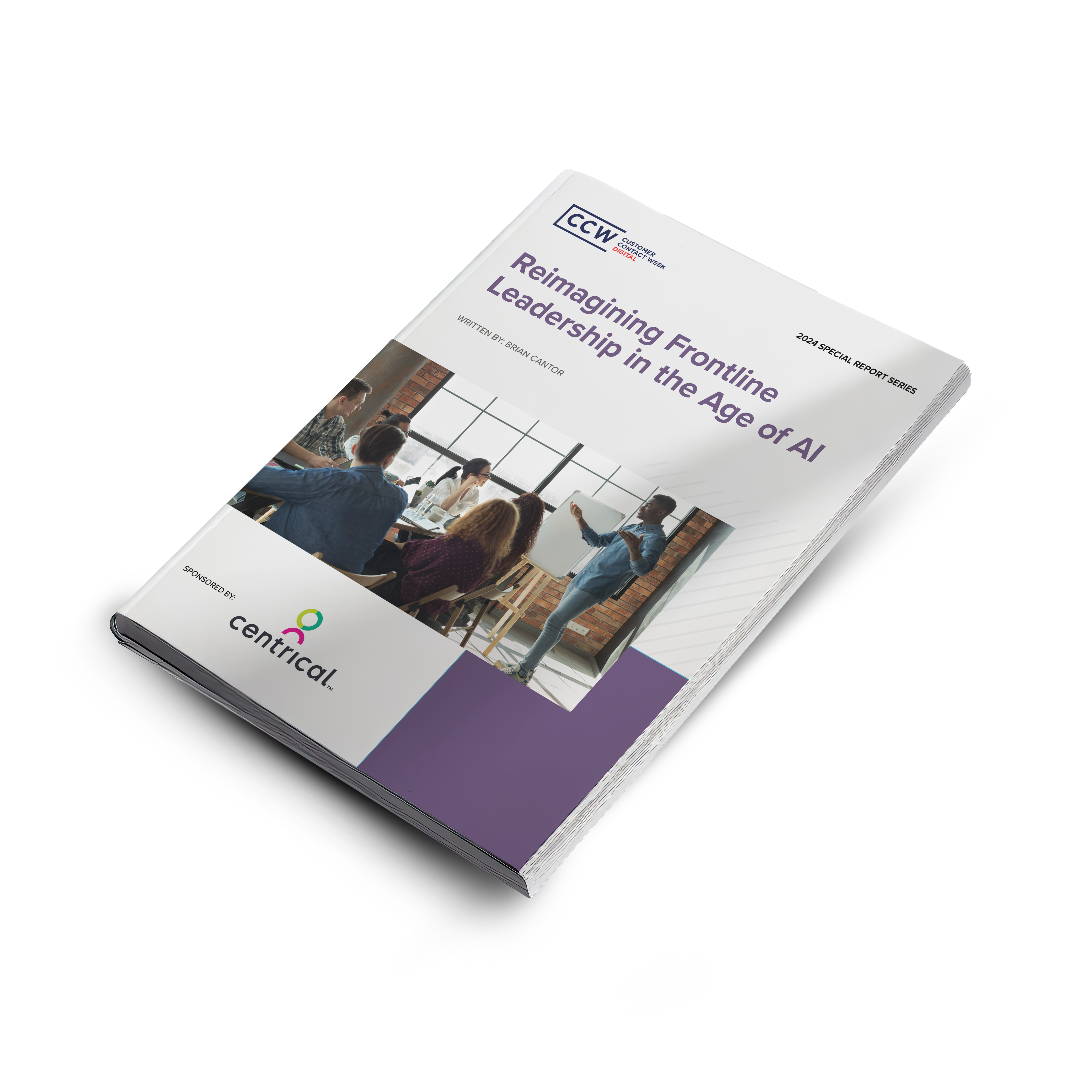Want to improve your coaching conversations but not sure where to start?
This toolkit is here to help. It’s designed for contact center team leaders who want to have more meaningful, personalized coaching conversations with their teams, with a little help from generative AI. Inside, you’ll find ready-to-use AI prompts to support every step of the process, from identifying performance trends to planning the conversation, following up, and celebrating success. Whether you’re coaching a top performer or helping someone get back on track, this toolkit will save you time and make every conversation more impactful.
Get the PDF version
“Coaching is a better driver of performance than training, staff retention, and recruiting high performers.”
Gartner

🧭 1. Reviewing Sales Performance & Pipeline
Strong coaching starts with visibility. Use real-time sales data to spot trends, identify blockers, and highlight growth opportunities across the funnel.
Use these prompts to get insight into rep performance and deal activity:
- “Summarize [Rep Name]’s performance over the past [insert timeframe]. Highlight wins and areas needing improvement.”
- “What trends stand out in [Rep Name]’s activity and pipeline metrics, such as meetings booked, deal progression, and close rate?”
- “Which KPIs have improved for [Rep Name] in the last month? Which ones have declined?”
- “Compare [Rep Name]’s performance to team benchmarks. Where are they ahead or falling behind?”
🍳 Food for thought: Patterns tell the real story
A single metric can be misleading. It’s the trends over time that show where support or recognition is really needed. Look for consistent dips or improvements across KPIs to guide your next coaching conversation.
👩🏻💼 2. Personalizing Your Coaching Approach
Coaching isn’t one-size-fits-all. Sales reps are motivated by different things: recognition, competition, autonomy, and purpose, among others. AI can help you decode what works best for each individual.
Use these prompts to tailor your coaching to each rep’s motivators and mindset:
- “Based on recent behavior and performance, what coaching style would resonate best with [Rep Name]?”
- “What motivates [Rep Name] based on recent recognition, deal performance, and team engagement?”
- “Suggest coaching strategies for a rep who’s missing quota but consistently puts in high activity.”
- “Write a motivational message that fits [Rep Name]’s personality (e.g., competitive, consultative, mission-driven).”
🍳 Food for thought: Coaching is connection
When you tailor your coaching to how someone thinks and what motivates them, you’re not just improving performance, you’re building trust and long-term engagement.

Directive vs. Guided Coaching
There are many coaching styles, but two of the most common are directive and guided.
Directive coaching involves giving clear, specific instructions or advice. It’s fast and focused but can reduce agent ownership and long-term growth.
Guided coaching uses thoughtful questions to help the agent reflect, problem-solve, and chart their own course. It fosters critical thinking, deeper engagement, and continuous development.
🗣 3. Planning the Conversation
A well-structured coaching session creates clarity and builds trust.
Use these prompts to prepare for a conversation that’s focused, supportive, and aligned with your rep’s goals:
- “Create a coaching session agenda for [Rep Name] focused on improving [specific KPI or sales skill].”
- “Draft a script to open a coaching conversation with [Rep Name], including praise and feedback.”
- “Suggest 3 open-ended questions to encourage [Rep Name] to reflect on recent deals or pipeline health.”
- “How can I connect today’s coaching topic to [Rep Name]’s professional growth goals?”
- “How can I transition from recognition to feedback while keeping the tone constructive?”
🍳 Food for thought: Start with the good stuff
According to Harvard Business Review, starting feedback conversations on a positive note increases receptiveness and reduces defensiveness.
Gartner’s Magic Formula: Scheduled vs. Integrated Coaching
To drive frontline performance, Gartner recommends combining two coaching approaches.
Scheduled coaching is planned, one-on-one time where managers and agents reflect, set goals, and align on development areas. It’s great for structure and clarity but can lose relevance if disconnected from daily work.
Integrated coaching happens in real-time, right after a customer interaction or performance moment. It reinforces learning, offers timely feedback, and fits into the natural rhythm of the workday.

Spend most coaching time in real-time conversations, with scheduled sessions reserved for deeper planning. This balance supports both daily performance and long-term growth.
📈 4. Supporting Skill Building & Deal Strategy
Setting clear goals is a powerful way to boost employee motivation by fostering a culture of accountability and continuous progress. Employees who know what goals they’re working toward are more engaged and committed. One proven method is the SMART goal framework, which stands for Specific, Measurable, Achievable, Relevant, and Time-bound. And, of course, make sure to follow up.
Use these prompts to support ongoing development:
- “Suggest specific, achievable actions [Rep Name] can take to improve qualification or discovery calls.”
- “Generate a follow-up message summarizing key takeaways and next steps from today’s coaching session.”
- “What micro-goals can I assign to [Rep Name] to help progress their stalled deals?”
- “Generate SMART goals for [Rep Name] tied to [KPI].”
- “Generate suggestions for improving [Rep Name]’s call prep or follow-through on high-value accounts.”
The Power of Deadlines
Want to instantly boost coaching follow-through? Add a due date. Centrical Labs analyzed over 200,000 coaching actions across 50,000 users and found that:
- Coaching actions with a deadline are completed 12% more often.
- Adding a deadline to coaching drives 4% better results on targeted KPIs.
- Overall performance increases by 0.23 standard deviations when a due date is included.
❤️ 5. Recognizing Wins & Building Confidence
Don’t just coach problems. Use these prompts to celebrate wins, and add a little fun along the way:
- “Write a short, personalized message recognizing [Rep Name] for closing a key deal or making a big leap in pipeline.”
- “Write a shoutout in the voice of [Celebrity or Movie Character Rep Loves].”
- “How can I turn [Rep Name]’s recent win into a best-practice moment for the team?”
- “What’s a creative way to recognize consistent effort, even before the win?”
🍳 Food for Thought: Why recognition matters
Recognition is a top reason people stay or leave. According to Deloitte, companies with recognition programs see 31% lower turnover and are 12x more likely to achieve strong business outcomes.

Engage and motivate your frontline teams
Improve performance with an AI-powered digital coach
Deliver world class CX with dynamic, actionable quality evaluations
Boost performance with personalized, actionable goals
Nurture employee success with the power of AI
Listen and respond to your frontline, continuously
Drive productivity with performance-driven learning that sticks
Drive agent efficiency, deliver client results
Keep tech teams motivated and proficient on products and services while exceeding targets
Maintain compliance while building customer happiness and loyalty
Enlighten energy teams to boost engagement
Engage, develop, and retain your agents while driving better CX
Improve the employee experience for your reservations and service desk agents








 Madeleine Freind
Madeleine Freind
 Natalie Roth
Natalie Roth Linat Mart
Linat Mart












 Doron Neumann
Doron Neumann Gal Rimon
Gal Rimon Daphne Saragosti
Daphne Saragosti Ella Davidson
Ella Davidson Ariel Herman
Ariel Herman Ronen Botzer
Ronen Botzer